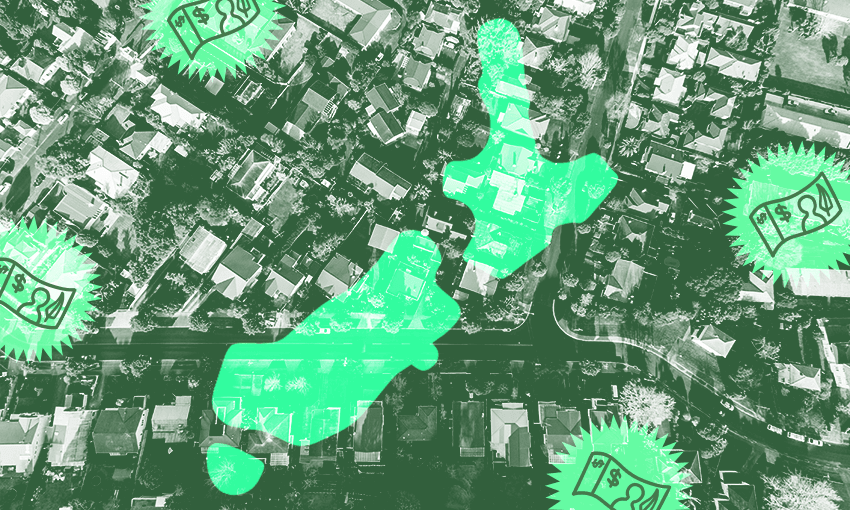In June 2021 Emma Vitz went viral with her maps showing how much you’d need to earn to afford a median house in your region. A year on, she finds that things have got even worse.
Did your family get a $32,000 pay rise in the last year? Probably not, but that’s what you would have needed to get to make buying a house in New Zealand as affordable (cough) as it was a year ago.
Back then, I published maps showing how much you needed to earn to afford the median house in New Zealand. They were based on the common financial advice to spend no more than 30% of your gross income on housing. I calculated mortgage repayments based on a 20% deposit and a 30 year mortgage with an interest rate of 4%.
Since then, both house prices and interest rates have gone up. So I thought I’d check in with our housing market and see how things have changed from April 2021 to April 2022.
In this period, the median house price across the country went up by 9%, or just over $70,000. For the West Coast, this increase was as high as 32%, while Gisborne, Manawatu and Otago saw small price decreases. The median house price in Auckland and Wellington increased by 4% and 7% respectively, while Canterbury saw a massive 21% increase.
In that time, the Reserve Bank hiked the official cash rate by a total of 1.25% (since April 2022, the RBNZ has increased the OCR again by 0.5%. However, regional data on house prices is available only until April, so I have not incorporated this latest increase into my calculations). Based on this, I raised the interest rate I used in my calculations from 4% in April 2021 to 5.25% in April 2022.
We can combine these factors to see how much of a pay rise your household would have needed to keep up with the housing market.
Across New Zealand as a whole, you needed an increase in household income of almost $32k to keep up. Those in the Tasman region needed a whopping $43k bump in income to match the increases in house prices and interest rates. The Waikato comes in close second with a required pay rise of $40k.
Even regions that experienced a drop in house prices needed a significant pay rise to cope with the increase in interest rates that flow through to the mortgage payment. Households in Gisborne and Manawatu needed a $17k and $13k increase in income respectively, while those in Otago needed a bump of $10k to keep up.
Of course, all of this assumes you were earning enough to pay for a mortgage with 30% of your gross income in April 2021, and that you managed to put together a 20% deposit. These are hurdles most New Zealanders cannot clear.
How much did household incomes actually increase? We can look at the change in median household income by region according to the Household Economic Survey. This data is collected from July to June each year, which means it is not available for 2022 yet. However, comparing the data we do have, which lags behind the housing data, can still be an interesting data point.
From June 2020 to June 2021, the increase in median annual household income across New Zealand was just over $2.5k, a far cry from the $32k necessary to avoid falling behind the housing market.
Households in Gisborne and the Hawke’s Bay had an increase of $14k, which is impressive but nevertheless insufficient to keep pace with the housing market, even with falling property prices in Gisborne. Northland and Southland saw a decrease in the median household income, while households in Auckland made a paltry $404 more than the year before.
(Note that Gisborne and the Hawke’s Bay are grouped together in the income data, as are Tasman, Nelson, Marlborough and the West Coast. It’s likely this obscures some variation in income between the regions).
These numbers show just how difficult it is for those in New Zealand who do not own property to gain a foothold in the market at this point in time. Substantial house price increases, coupled with rising interest rates and sluggish wages, lock many out of the housing market entirely. Larger deposits are required, mortgage applicants are tested by banks at higher interest rates, and wages simply do not keep up.
